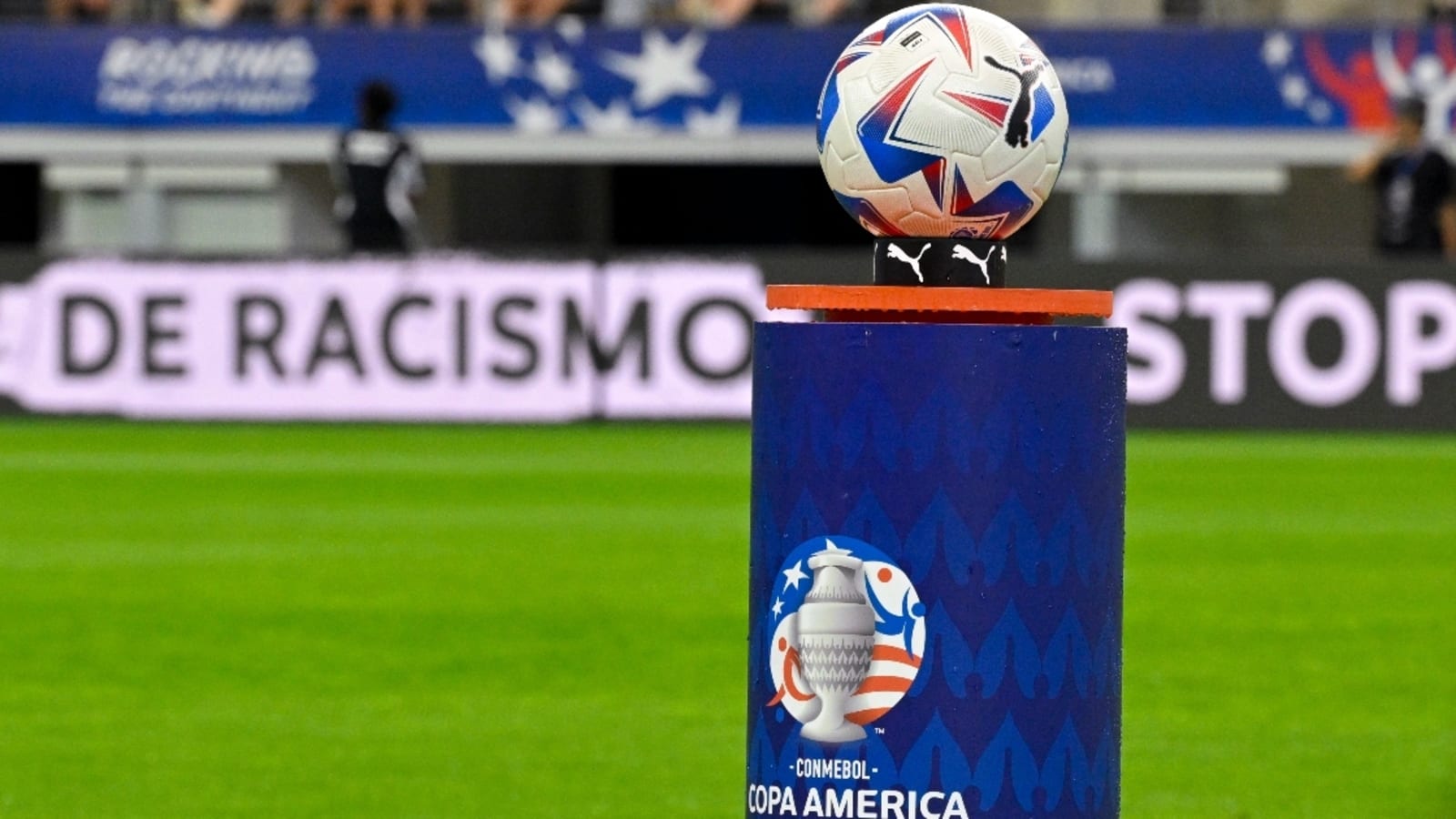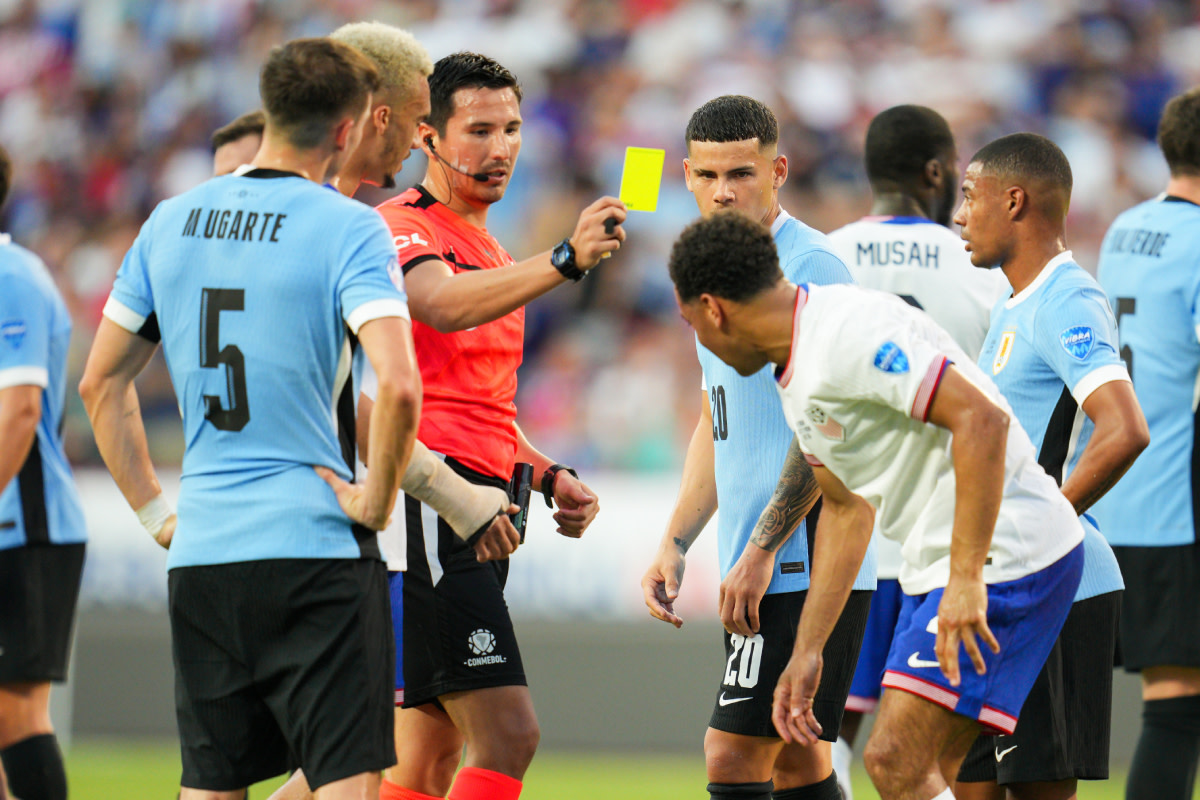Referee Controversies
Usa uruguay referee – The rivalry between the United States and Uruguay in international soccer has been marked by several controversial refereeing decisions that have sparked debate and criticism. These controversies have had a significant impact on the perception of referees in international soccer and have led to calls for greater transparency and accountability in the officiating process.
Di Uruguay referee dem don cause wahala for di USA-Uruguay match. Di referee, Facundo Tello, bin give USA penalty for di first half, but VAR overturn am. Dis cause plenty wahala for di match, and many pipo for Puerto Rico dey vex about di decision.
Even though di USA win di match 1-0, di refereeing controversy go still dey for pipo mind for a long time.
One of the most infamous incidents occurred during the 2010 FIFA World Cup quarterfinal match between the two teams. In the 81st minute, with the match tied 1-1, Uruguay striker Luis Suarez appeared to deliberately handle the ball in the penalty area. The referee, who was positioned directly behind Suarez, did not award a penalty, and Uruguay went on to win the match on penalty kicks.
The USA-Uruguay refereeing controversy sparked widespread debate. Amidst the discussions, meteorologists closely monitored the hurricane beryl spaghetti models , predicting its potential impact on coastal areas. The refereeing decision, however, remained a topic of heated analysis, with experts and fans alike expressing their opinions on the matter.
The decision not to award a penalty sparked outrage from the United States team and fans, who felt that Suarez had cheated. The incident led to widespread criticism of the referee and raised questions about the integrity of the officiating process. In response, FIFA announced that it would be implementing a new system of video assistant referees (VARs) to help referees make more accurate decisions in the future.
Cultural Differences in Refereeing: Usa Uruguay Referee

The styles of refereeing employed in the United States and Uruguay exhibit notable differences. These variations can be attributed to a range of cultural factors, including the respective countries’ footballing traditions, societal norms, and the interpretation of the game’s rules.
Refereeing Styles
In the United States, referees tend to adopt a more lenient approach, allowing for a greater degree of physicality and contact during matches. This style aligns with the American emphasis on athleticism and competitiveness. In contrast, Uruguayan referees are generally stricter, enforcing the rules more rigorously and penalizing players for even minor infringements. This approach reflects Uruguay’s reputation for producing technically skilled and disciplined players.
Cultural Influences, Usa uruguay referee
The cultural differences in refereeing between the two countries can be traced back to their respective footballing histories. The United States has a relatively young football culture, with the sport gaining popularity in the latter half of the 20th century. As a result, American referees have been influenced by other sports, such as basketball and ice hockey, which tend to allow for more physical play. Uruguay, on the other hand, has a long and rich footballing tradition dating back to the early 1900s. Uruguayan referees have been trained in a system that emphasizes strict adherence to the rules, reflecting the country’s strong emphasis on discipline and respect for authority.
Impact on Matches
The differing refereeing styles can have a significant impact on the outcome of matches between the two teams. American teams may find it difficult to adapt to the stricter officiating of Uruguayan referees, which can lead to increased penalties and a loss of momentum. Conversely, Uruguayan teams may struggle to cope with the more lenient approach of American referees, resulting in a higher incidence of physical play and potential injuries.
FIFA Rankings and Referee Assignments

The FIFA rankings are used to determine the seeding of teams in international competitions and to assign referees to matches. The rankings are based on a team’s performance over the past four years, with more recent results weighted more heavily. The top-ranked teams are typically assigned the best referees, while the lower-ranked teams are assigned less experienced referees.
Criteria for Referee Assignments
The criteria used to assign referees to international matches include:
- The referee’s experience and qualifications
- The referee’s nationality
- The teams involved in the match
- The location of the match
FIFA tries to assign referees to matches in a way that minimizes the potential for bias. For example, a referee from a country that is not involved in the match is typically assigned to the match. However, there have been cases where referees have been accused of bias, particularly in matches involving high-stakes teams.
Potential Biases in Referee Assignments
There are a number of potential biases that can affect referee assignments. These include:
- Nationality bias: Referees may be more likely to favor teams from their own country.
- Team bias: Referees may be more likely to favor teams that they are familiar with or that they have a personal connection to.
- Rank bias: Referees may be more likely to favor higher-ranked teams.
These biases can have a significant impact on the outcome of matches. For example, a referee who is biased towards a particular team may be more likely to make calls in their favor, which could give them an unfair advantage.